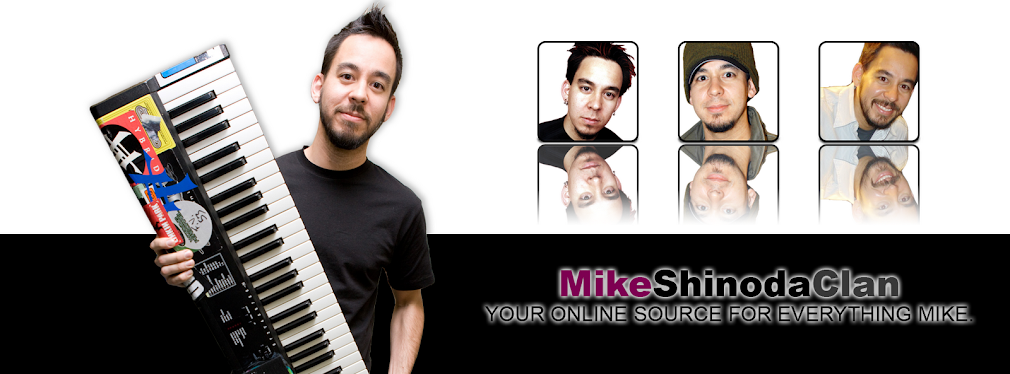Friday, February 11, 2005
February 2006
Summer Of '42
Fort Minor's Mike Shinoda talks about his family's internment camp story in 'Kenji'
By Todd Inoue
MOST ROCK fans know that Linkin Park's Mike Shinoda accepted a Grammy award last week with Jay-Z for Best Rap/Sung Collaboration. What people don't know was that Shinoda received another prestigious award the week prior—except that his fellow award recipients weren't plucked from the pop charts. They included Farewell to Manzanar author Jeanne Wakatsuki Houston, Giant Robot co-founder Eric Nakamura and artists Sandra Higashi and Bryan Glaser. All were honored at the Japanese-American National Museum's annual gala in L.A. for outstanding contributions.
Shinoda, whose father is of Japanese-American extraction, is in one of the world's biggest bands (Linkin Park has sold 36 million records, and its renegotiated contract with Warner Bros. Records is reportedly worth $15 million). Shinoda has it made, but instead of installing princess-cut fronts on his teeth, he formed a side project, Fort Minor, which allows him to more deeply explore his hip-hop and electronic influences and address topics outside of the Linkin Park realm. The group, which features L.A. underground rappers Styles of Beyond, released its debut album, The Rising Tied, last year. One track, "Cigarettes," puts blinganomics on blast. "Where'd You Go?" is a wistful track about isolation and is addressed to his wife. One Fort Minor song that wouldn't make the Linkin Park setlist is about the Japanese-American internment called "Kenji." Shinoda's father's family was interned in Manzanar internment camp during World War II, when 120,000 Japanese-Americans on the West Coast were uprooted due to wartime paranoia.
Shinoda remembers writing a paper about the internment in high school to offset the shoddy coverage it received in his textbook. "They had half a page in the high school history book," Shinoda says. "At the top of the page was a picture of the bombing of Pearl Harbor. So it was like, 'Look at what they did to us, so we put these people in prison camps.' That was the attitude. I remember seeing that and being pissed off about it. You're young and have all the different chemical imbalances going on. It makes you very angry."
"Kenji" is based on interviews with his father and his aunt, who is in her 80s. Shinoda raps about how the family was given two days to pack everything into two bags, and about the depression, racial profiling, living under lockdown, growing crops for the guards and the aftermath of suspicion. Their voices can be heard in sound bites.
At a family reunion, Shinoda played the song for small groups to gauge their reactions. "I wanted to make sure they were OK with it," he explains. "I told them that if anybody is concerned to give me input. My uncle, who is a very stoic Japanese guy, cried when he heard the song. He couldn't help it. He said he loved it. That's when I started thinking I had to put this on the album or else I'll end up kicking myself for life."
Shinoda's position allows him to spread awareness of issues like the internment and the tsunami to an audience who wouldn't normally be up on those things. Still, he knows what Linkin Park fans expect; being pandered to is not one of them.
"The responsibility in having the voice to speak to people around the world is you have to be considerate," Shinoda says. "We don't get into politics and those type of conversations, because we know our younger fans are learning about those things. We wouldn't want to lead them in a direction without them learning things for themselves. If you want to learn about something, you should do it on your own."
On its last tour, Linkin Park took proceeds from six shows and divided them equally; each member gave the money to whatever charities he chose. Shinoda gave his money to an L.A. AIDS charity, Densho (a Japanese-American legacy project), and (drumroll) the Japanese-American National Museum. Now that's an outstanding contribution.













0 comments:
Post a Comment